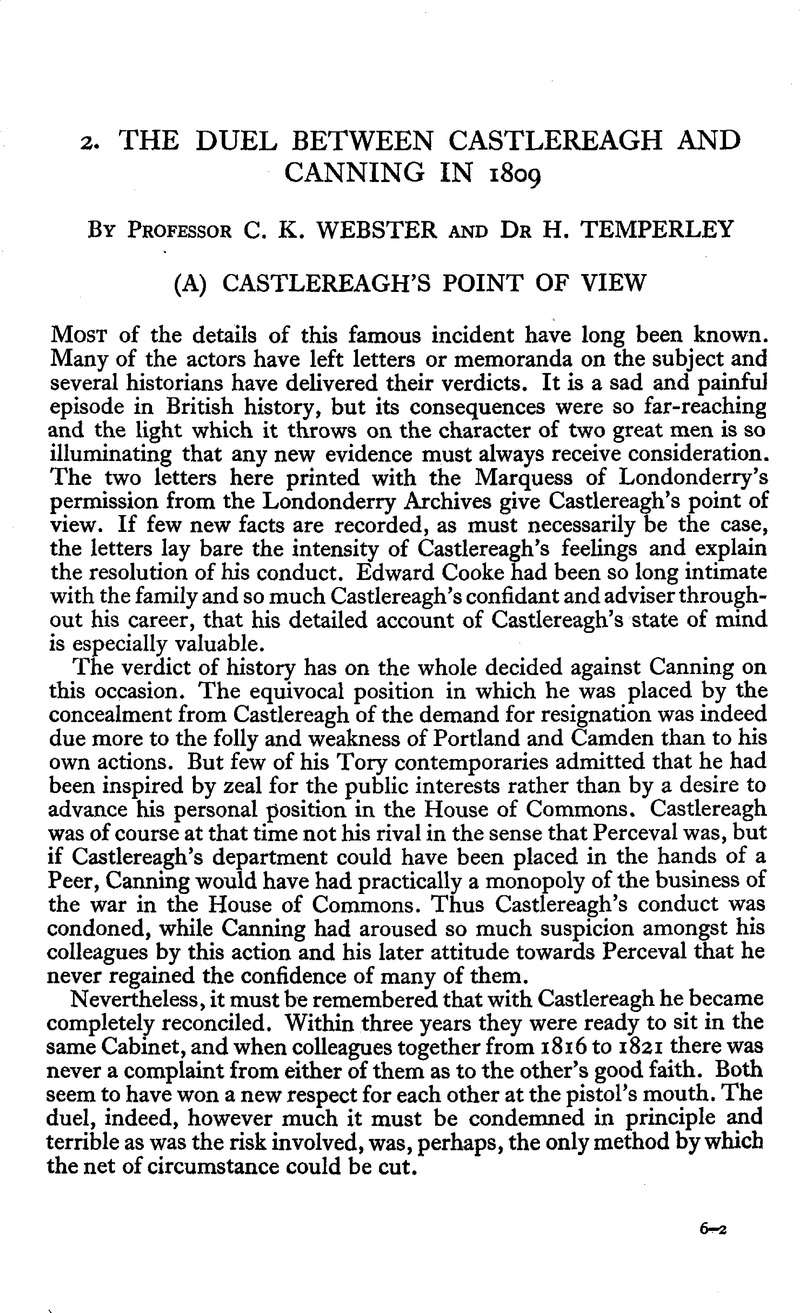No CrossRef data available.
Published online by Cambridge University Press: 20 December 2011

page 84 note 1 In 1805 Castlereagh had entered into negotiations to obtain a seat in Parliament for his friend Lord Clancarty by means of a “Writership” in the East India Company's service, he then being President of the Board of Control. Castlereagh admitted indiscretion and in the debate, which followed party lines, was warmly defended by Canning, who moved and carried a resolution deprecating any action.
page 86 note 1 Castlereagh to Canning, 19 September 1809. Canning to Castlereagh 20 September 1809 accepting the challenge says: “I will cheerfully give to your Lordship the satisfaction which you require.” Annual Register 1809, 504–5. There is a very complete dossier of all the statements published at the time in L. T. Rede's Memoirs of Canning (1827), pp. 190–218.
page 87 note 1 See note 1 on previous page.
page 87 note 2 Left blank. “The King's command” is meant.
page 90 note 1 Of 3 October 1809. Castlereagh Corres. 1. 18.
page 91 note 1 v. letter to Duke of Portland, R. Plumer Ward's Diary, I. 241–5; the letter consists of general statements, but the “change “appears to have been asked for verbally.
page 91 note 2 Spencer Walpole's Spencer Perceval, 1. 358.
page 92 note 1 Castlereagh Correspondence, 1. 18–19.
page 93 note 1 The enclosed letter does not appear, but its nature can be guessed from the reference to it in the Duke of Portland's letter of the next day, immediately following.
page 94 note 1 Walpole's Spencer Perceval, I. 371.
page 95 note 1 R. Plumer Ward's Diary, I. 238–40; italics as in original here and in the Granville MSS.